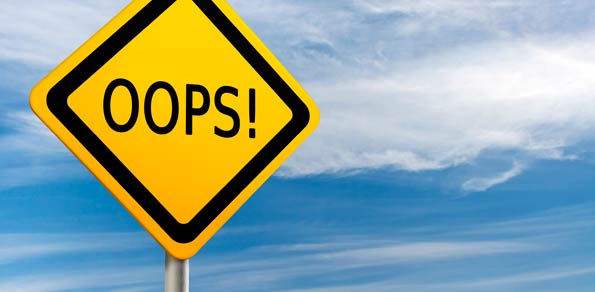Euro leaders will have been brought back down to earth with a harsh bump and reminded of the stark reality of the current situation as Moody’s downgraded the credit worthiness of the leading French banks. BNP Paribas SA, Societe Generale SA and Groupe Credit Agricole had their credit ratings cut by Moody’s Investors Service this morning, Moody’s stating that there was a “very high” chance the banks will get state support if needed.
Stating the prevailing and continuous funding constraints and the deteriorating economic landscape at the heart of the European debt crisis, Moody’s took the decision to cut the long-term debt ratings for BNP Paribas and Credit Agricole by one level to Aa3. This level is in fact the fourth-highest investment grade Moody’s attribute. Societe Generale’s rating was cut down to A1, the fifth highest. Moody’s also cut what it terms the “standalone” assessments of financial strength of the three banks in question. This blow must further put in doubt France’s AAA rating.
Moody’s stated;
[quote]Liquidity and funding conditions have deteriorated significantly. Lenders have relied on international money markets. The likelihood that they will face further funding pressures has risen in line with the worsening European debt crisis.[/quote]
The banks’ ratings cut have focused attention and put at risk France’s AAA rating. Standard & Poor’s warned earlier this week that the country’s top credit rating risked being downgraded, citing French banks’ funding constraints amongst the potential reasons. French banks have been forced to increase their borrowings by accessing funds from the European Central Bank as their access to U.S. money-market funds has been frozen recently.
At $681 billion as of June 2011, French banks still have the highest holdings of public and private debt in the five PIIGS, the crisis ridden countries of: Greece, Ireland, Italy, Spain and Portugal, according to data from the Bank for International Settlements. Before today, BNP Paribas’ share price had fallen by 35 percent this year, Societe Generale by 53 percent and Credit Agricole by 52 percent. This compares with an overall 33 percent fall in the 46 company Bloomberg Europe Banks and Financial Services Index.
Equities in Europe swung wildly during the early part of the morning session as the euro pared declines after news that the Euro region’s leaders had boosted a rescue fund and tightened budget rules in order to stem the debt crisis. Italian bonds initially fell whilst the cost of insuring versus default increased for the third consecutive day.
The Stoxx Europe 600 Index fell by 0.1% at 9:45 a.m. London time, having earlier fallen by 0.9#. Standard & Poor’s 500 Index futures climbed 0.1 percent, and the MSCI Asia-Pacific Index slid 2.1 percent. The euro remained virtually static vis a vis opening price versus the dollar at $1.3337, after weakening initially 0.4 percent. Ten year Italian bond yields ha e added 10 basis points to 6.56 percent.
Market snapshot as of 10:45 am GMT (UK time)
Asian markets fell in overnight early morning trade, the Nikkei closed down 1.48%, the Hang Seng closed down 2.73%, the CSI closed down 0.85%. The main Aussie index the ASX 200 closed down 1.82%. European bourse indices are currently rising; the STOXX 50 is up 0.48%, the UK FTSE is up 0.08%, the CAC is up 0.53%, the DAX is up 0.28% and the MIB is up 1.08%. Brent crude is down 0.05 at 108.60 and spot gold is up $5.52 at $1713.92. The SPX equity index future is currently up 0.39%.
Economic calendar data releases that may affect market sentiment in the afternoon session
13:30 US – Trade Balance October
14:55 US – Michigan Sentiment December
Economists surveyed by Bloomberg yielded a median forecast of -$44.0 billion for the USA trade balance. The previous figure was -$43.1 billion, the trade deficit is expected to deepen. A significant move, from the actual figure printed, could result in high volatility in the USD.






Comments are closed.